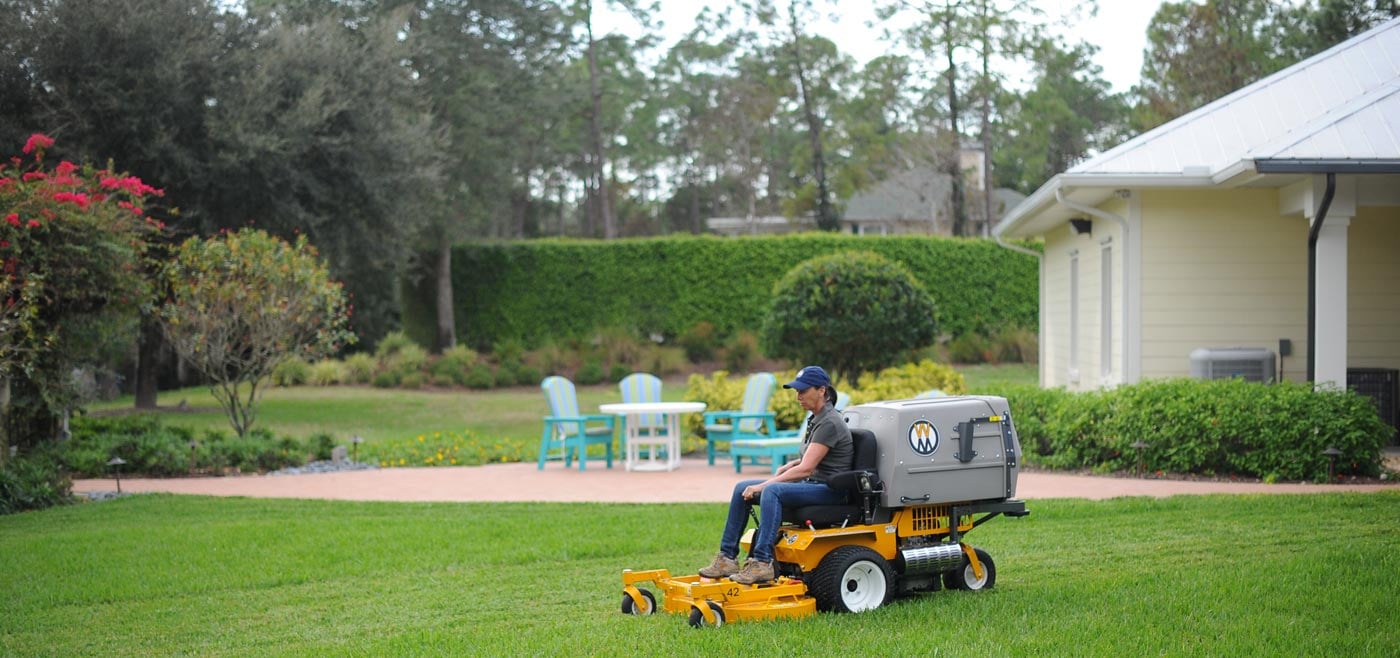Some of the biggest and most successful landscaping and lawn management operators in the country today started their businesses on a part-time basis.
They may have started by cutting their neighbors' lawns or "mowing their way" through school. Others may have looked at their lawn mowers as a means to generate extra cash beyond their full-time work, and found that mowing was appealing.
Mowing lawns and providing other maintenance services part-time is a fact of life in this industry. The profession is relatively easy and inexpensive to enter, and marketing services is as simple as knocking on the neighbor's front door.
Unfortunately, the perception is that part-timers can be successful without being professional. Since they're operating part-time, they can get away with not having uniforms, good equipment, contracts, training and competent employees. Since they don't have the large overhead and don't really need the money, their pricing structure is skewed too low.
This need not and should not be the case. Part-timers who think and act like professionals can make more money, develop a more loyal customer base and grow their businesses faster than those who don't. They will also have a better opportunity to turn their part-time job into a full-time business, if they so desire.
Starting Out
If you're a Walker operator, you're already starting out on the right path. Having quality equipment will help project a professional image. The key is to build on this foundation.
Start by taking a close look at your operation and your procedures. Make sure you're following local regulations regarding the operation of a lawn mowing business, and that you have appropriate insurance for you, your equipment and your customers. Part time operators still have a level of responsibility to maintain.
Image is important, as well. As a part-timer, you may not have the resources to buy uniforms or drive around in fancy rigs, but you can still project a professional image by being as neat as possible, and keeping your equipment clean and maintained.
Consistency is important, too. Customers appreciate being on a schedule and having their service providers show up when they're supposed to.
Strive to communicate with your customers on a regular basis and give them custom service. In other words, be responsive. The most successful lawn maintenance contractors understand the true value of their customers and provide exemplary service.
Develop A Pricing Strategy
The key to becoming a professional operator is thinking like a professional. According to green industry consultant Jack Mattingly, the first and foremost step here is to get your pricing set right, and that implies tracking hours.
"Develop a simple time sheet, and track the amount of time you spend on each job," Mattingly relates. "Don't forget to add in travel time. No one pays you for that so you have to factor it in on costing strategies.
"Keep track of the time on a sheet of paper or put the figures into an Excel program. At the end of the month, compare how much time you've spent on each job to how much the customer has paid you. That will give you a dollar per hour idea of how much you're actually making."
He emphasizes the word "idea" because in addition to the number of hours spent directly on a job, other items have to be included to determine your net profit on a job; how much you're actually making per hour (see "Plugging leaks" on this page).
Mattingly, who has consulted for some of the largest and most successful landscape management companies in the country, says that knowing your actual per hour figure vs. what you've estimated is a key to running a successful part-time operation. It will give operators a chance to raise prices if they need to, or lower them if their pricing structure is too high to remain competitive.
Either way, knowledge is power and is one of the first steps to becoming more professional.
Plugging Leaks
Whether you're a big operator, small operator or someone in between, chances are there are some hidden costs in your operation that eat away at profits. For part-timers and those without formal accounting programs in place, these expenses can remain hidden indefinitely. Here are just a few to consider:
$ Indirect hours spent performing administrative functions such as invoicing, making sales calls, performing estimates
$ Indirect hours spent doing repairs, sharpening blades, and performing preventive maintenance
$ Fuel costs, repair costs and other equipment costs
$ Replacement costs. Trucks, trailers and lawn mowers will need to be replaced one day. Smart operators set aside a percentage of their revenue for that contingency.
$ Other indirect business expenses such as insurance cost and licensing fees




 Site Search
Site Search



